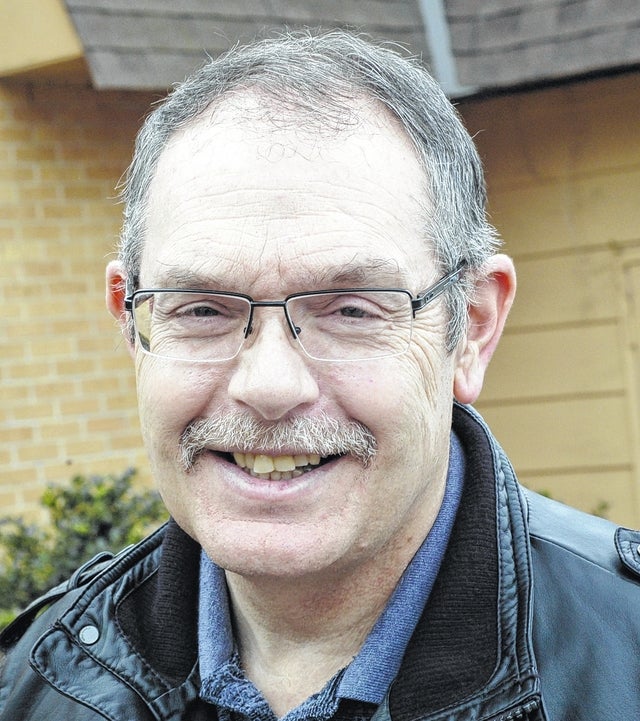Troup County Extension agent: Fall garden ramblings
Published 12:00 am Friday, September 25, 2015

Fall is upon us already and we need to be doing preventive maintenance in our gardens.
We are blessed by our southern climate. Folks further north are done with their gardens and landscapes and only await the cold wind and snows of winter.
We have the opportunity to grow a cool season crops such as radishes, spinach and onions. For those who have decided to put their vegetable garden to rest there are some things that can be done now that will help have a productive garden next year.
Many insects and diseases can overwinter in the garden. Properly disposing of old plants in the compost pile can head some of this off.
Raking up leave debris from under the fruit trees will help as well. Rotary tilling the soil in the fall can also help disrupt the life cycle of insects that overwinter in the soil.
If you have plenty of compost, this may be a good time to incorporate into the soil but don’t leave the soil bare. Rotary tilling gives the gardener the opportunity to improve the soil by planting cover crops.
Planting legumes such as crimson clover, Yuchi clover, hairy vetch or winter peas can add nitrogen to the soil as well as organic matter from their roots and tops. Legume roots have a symbiotic relationship with bacteria on their roots, which have the ability to fix nitrogen from the air to nitrogen that can be utilized by plants.
Planting cereal rye can also be planted as a cover crop. Besides adding much organic matter to the soil, it also has an allelopathic effect on weeds. Cereal rye produces compounds that suppress weeds.
You can also plant legumes with the cereal rye and get the best of both worlds. By planting cover crops you can suppress weeds, add organic matter to the soil and prevent soil erosion.
If you notice dead branches in your boxwoods, junipers and other plants, now is the time to prune the dead wood. Dispose of the dead wood by burning or sealing it in a trash bag. Sterilize your pruners between shrubs so you don’t spread any disease.
Winter injury, phytophthora root disease and volutella blight has caused a lot of dieback in boxwoods. Shake out the dead leaves and rake up the debris and dispose of properly.
Stay away from any “weed and feed” products for warm season grasses such as Bermuda, zoysia and centipede. The high nitrogen content of these products causes new growth, which can be subject to winter injury. They are designed for cool season grasses such as tall fescue.
You can apply pre-emergent herbicides to control winter annuals during September and October. Read the label carefully to make sure it’s safe for your lawn and it controls the weeds you have identified.
After your final mowing and use of your other gasoline powered tools it’s time to winterized them as well. Leaving untreated gas in the carburetor will cause it to volatilize and leave gum deposits behind which will cause difficult starting next spring.
There are two things you can do. Drain as much gas out of the tank as you can and run the tool until it stops. The carburetor will be empty at this point.
The second alternative is to purchase a gas treatment, which will prevent the gasoline from deteriorating and causing the gum buildup. It will work in both two-cycle and four-cycle engines.
Follow the directions on the container. Don’t forget to mulch around those plants who might not be too winter hardy. It will help protect against a cold winter and those drought spells as well.
Next spring you should be off to pretty good start if you implement some of these suggestions.
What’s going on in Extension?
Jefferson Street Market begins Saturday mornings from 9:30 a.m. to noon at 625 Jefferson St. just off of Dallis Street.
Oct. 1: Tax Issues with Timber Sales and Harvest, 7 p.m. at the Ag Center, Dr. Ben Jackson; no cost.
Oct. 10: Our 59th Annual October Harvest Fest will be held at the LaGrange Mall in the J.C. Penney parking lot from 8 a.m. to noon. We will have locally grown produce plus jellies and jams and all kinds of crafts. If you wish to have a booth, call the extension office for further information
Oct. 29: Small Flock Management Class. Cost is $15; lunch provided. Call the extension office to sign up.
Tree seedlings can be ordered from the Georgia Forestry Commission, 706-845-4122.


